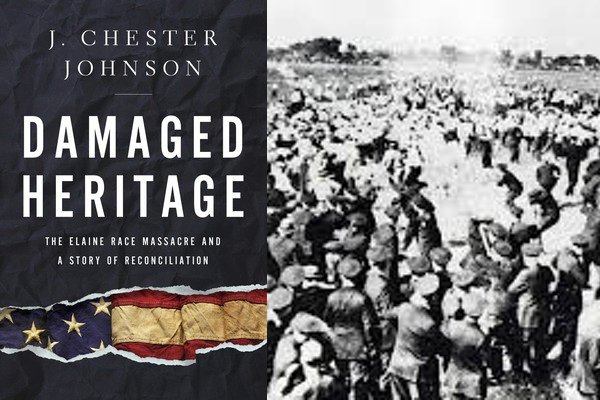Those We Abuse, We Loathe

I grew up white along the Mississippi River Delta in southeast Arkansas, one of the most racist regions of the country and site of the Elaine Race Massacre, arguably the most significant racial attack against African-Americans in our country’s history. I was reminded as I recently watched renewed grief combusting on the streets of most of our large American cities of the truism I learned early in my life: those we whites abuse, we in turn then loathe.
How can we whites not acknowledge the cause of the black anger and frustration in response to the cavalier manner in which the lives of Ahmaud Arbery, Breonna Taylor, and George Floyd were taken? Who could not say that whites hardly showed any regard at all in the executions of these three African Americans? Indeed, we too often witness the face of indifference as black lives are casually taken away.
We now hear the call, the habitual drumbeat, once more for racial healing, but it is simply not possible to have a credible discourse on the subject of racial healing in the absence of a full admission that black lives are routinely, if not normally, treated as largely trivial by an important segment of American officialdom, including the police. How else can we account for the recurrence of white violence without consequences?
So, how do we move from whites inflicting abuse to the dismissal by whites of African-American lives? Implicit in the historical ability of whites to abuse blacks with impunity has been the related evil of seeing black lives as inferior. The various reminders of abuse one practices can be mortifying and agonizing, and can foster deep hatred, both for one’s own self as perpetrator but also toward the object or target. In the extreme, abusers can desire and seek the complete elimination of the object of one’s abuse in the belief that the strong urge behind the abuse will also simply disappear with the absence of the object or victim. Yet, this process rarely squelches the motive. The associated illusion that loathing only exists because the object deserves demonstrable hatred has led to violent outbursts reflected through lynchings and brutalizations, such as the mutilation and murder of Emmett Till, if not more recent deaths of numerous African-Americans.
And yet, many whites recognize at some level that such hatefulness exists within white identity rather than being provoked by the Other. They knew they could never save themselves from damaged heritage, that legacy of prejudicial tradition and violence derived from American white racism, perpetrated against African-Americans, and passed on and repeated from generation to generation. The traditions, the customs, the evil reflected in history against African-Americans were too ingrained and too intertwined with who those American whites were for them to cleanse themselves.
Over the seven decades of my life facing racial division and white subjugation of black people, I have witnessed time and again that whites have little capacity to cleanse themselves, as the continuous harm caused by whites against blacks, whether by abuse, loathing, or customary impulse, built up so much scar tissue over the years and generations that it became impossible for the perpetrators to penetrate into their own hidden humanity through those layers of tragedy whites had imposed.
And thus, white abuse and loathing had to persist to degradation in the value of African-American lives. I cannot be convinced that American whites, for generations, didn’t comprehend the evil nature of African-American subjugation, but they could not help themselves from following the well-worn path--clearly marked without ambiguity--which grandfathers and grandmothers, mothers and fathers also followed, so that encroachments on the past and departure from traditions simply became a form of heresy. Over multiple generations, while ancestors realized the evil nature of racial oppression, the availability of free or cheap labor and the allure of maintaining white supremacy as a way of life were much too appealing to oppose.
So, let us proceed to endorse racial healing. It is only prudent and necessary to do so as a nation. However, at the same time, let us recognize that such an effort will be futile from the outset in the absence of an initial step that leads to an admission by this country that black lives have been systemically valued less than white lives by not only governmental institutions but the public at large. Only on a foundation of a realistic acknowledgment of the past and current status for black lives in this country can we expect that such adverse behavior, as we continue to experience, will not be repeated again and again and that black lives can be viewed by all Americans as equal in value to white lives.